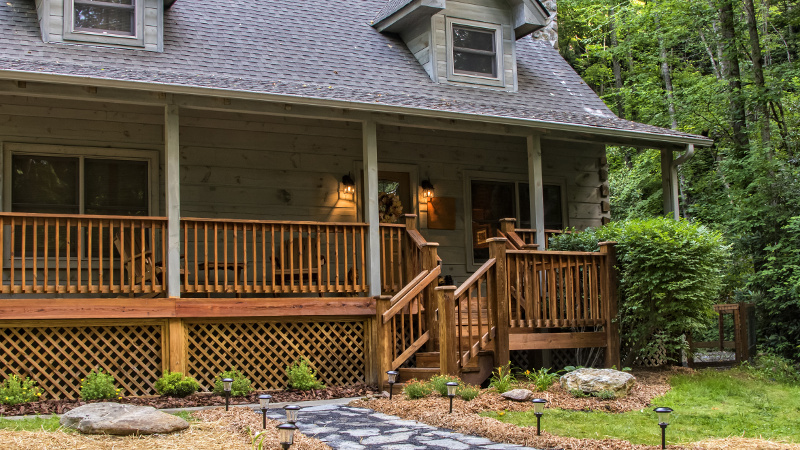
Be sure to research the company before purchasing a REIT. Find out more about the company and how it compares against other competitors. This way, you will be able to determine whether or not it will pay dividends well. It is important to be aware of the potential risks associated with REITs.
Tip to Buy REITs
You should consider the quality of REITs and the earnings before investing. The company's earnings include funds earned from its properties and any cash available to pay dividends. You should also look at the fees associated with the investment. Diversification of REITs is also important. Some REITs may be heavily invested in a specific type of property. This can increase your risk of losing money. To minimize your risk, you should consider investing in more than one REIT and diversifying your portfolio.
One of the best ways to invest in REITs is to set up a brokerage account. This is a quick and easy way to trade and buy publicly traded REITs. These investments often pay high dividends. Some REITs allow you to hold your funds in tax-favored accounts, meaning you won’t pay taxes on the distributions.
Dividends are subjected to taxes
When purchasing REITs, investors should be aware of the taxes on dividends. Capital gains are when a REIT sells real estate assets. These capital gains can be included in dividends. The amount of tax due depends on whether or not the investor is eligible for special tax concessions. If he or she doesn't qualify for special tax concessions, the dividend will be taxed at the investor's marginal tax rate.

If REITs do not require close ownership, investors can avoid paying taxes. Investors should also be cautious about REITs with a less than five-year history of dividends. REITs can't be owned by more than half of the population. The Tax Cuts and Jobs Act provides 20% deduction for income passed through.
Liquidity
Liquidity is an important consideration for REITs. It helps them to withstand unanticipated changes in their assets' value. REITs also have the option to increase their wealth by distributing a portion their earnings to their investors. REITs have used lower interest rates to boost their cash balances and improve liquidity during the recent downturn. However, REITs should not be treated as a safe investment - volatility is an inherent part of the business.
REITs are also liquidity because shares can easily be bought or sold on the stockmarket. Investors have the option to access liquidity and make adjustments to their investment strategies or cash flow. In addition, investors may find REITs attractive because real estate is a non-correlated asset class.
There are risks associated with investing in REITs
REITs may provide steady income in dividends but investors should remember that REITs cannot be considered risk-free investments. Reit investments can drop in value because they are traded as stocks. Although they are relatively safe investments, they must compete with other high-yield investment options, which could cause REIT stock prices to decline.
Another important risk is the interest rate risk. Rising interest rates can lead to higher borrowing costs for REITs which could impact their cash flow. However, these risks can be mitigated by the fact that REITs tend to have solid balance sheets. These managers try to maintain a healthy amount of leverage. Investors should be aware of this fact.

When should you buy
Before you invest in REITs it is important that you consider your financial situation as well as your investment goals. It is also important to understand how REITs affect your tax situation. These REITs generate a large portion of their value through dividends income so they might not be the best choice if you are trying to maximize your tax benefits.
Uncertainty around the expiration date for master leases is a big problem for REITs. This uncertainty is often driving investors to sell. Investors' fundamentals have suffered as a result. Despite the uncertainty, most investors fail to take into account the fact that short-term issues have little impact on long-term prospects.
FAQ
Is it better for me to rent or buy?
Renting is usually cheaper than buying a house. However, renting is usually cheaper than purchasing a home. You also have the advantage of owning a home. You will be able to have greater control over your life.
How can I determine if my home is worth it?
It could be that your home has been priced incorrectly if you ask for a low asking price. You may not get enough interest in the home if your asking price is lower than the market value. You can use our free Home Value Report to learn more about the current market conditions.
What amount should I save to buy a house?
It all depends on how long your plan to stay there. If you want to stay for at least five years, you must start saving now. But, if your goal is to move within the next two-years, you don’t have to be too concerned.
What is reverse mortgage?
A reverse mortgage is a way to borrow money from your home without having to put any equity into the property. You can draw money from your home equity, while you live in the property. There are two types of reverse mortgages: the government-insured FHA and the conventional. Conventional reverse mortgages require you to repay the loan amount plus an origination charge. FHA insurance covers repayments.
Statistics
- Based on your credit scores and other financial details, your lender offers you a 3.5% interest rate on loan. (investopedia.com)
- 10 years ago, homeownership was nearly 70%. (fortunebuilders.com)
- It's possible to get approved for an FHA loan with a credit score as low as 580 and a down payment of 3.5% or a credit score as low as 500 and a 10% down payment.5 Specialty mortgage loans are loans that don't fit into the conventional or FHA loan categories. (investopedia.com)
- This means that all of your housing-related expenses each month do not exceed 43% of your monthly income. (fortunebuilders.com)
- This seems to be a more popular trend as the U.S. Census Bureau reports the homeownership rate was around 65% last year. (fortunebuilders.com)
External Links
How To
How to find an apartment?
When moving to a new area, the first step is finding an apartment. Planning and research are necessary for this process. It includes finding the right neighborhood, researching neighborhoods, reading reviews, and making phone calls. This can be done in many ways, but some are more straightforward than others. Before renting an apartment, you should consider the following steps.
-
You can gather data offline as well as online to research your neighborhood. Online resources include Yelp. Zillow. Trulia. Realtor.com. Local newspapers, landlords or friends of neighbors are some other offline sources.
-
Read reviews of the area you want to live in. Review sites like Yelp, TripAdvisor, and Amazon have detailed reviews of apartments and houses. Local newspaper articles can be found in the library.
-
To get more information on the area, call people who have lived in it. Ask them about what they liked or didn't like about the area. Also, ask if anyone has any recommendations for good places to live.
-
You should consider the rent costs in the area you are interested. Renting somewhere less expensive is a good option if you expect to spend most of your money eating out. If you are looking to spend a lot on entertainment, then consider moving to a more expensive area.
-
Learn more about the apartment community you are interested in. It's size, for example. What price is it? Is it pet friendly? What amenities is it equipped with? Are you able to park in the vicinity? Do you have any special rules applicable to tenants?